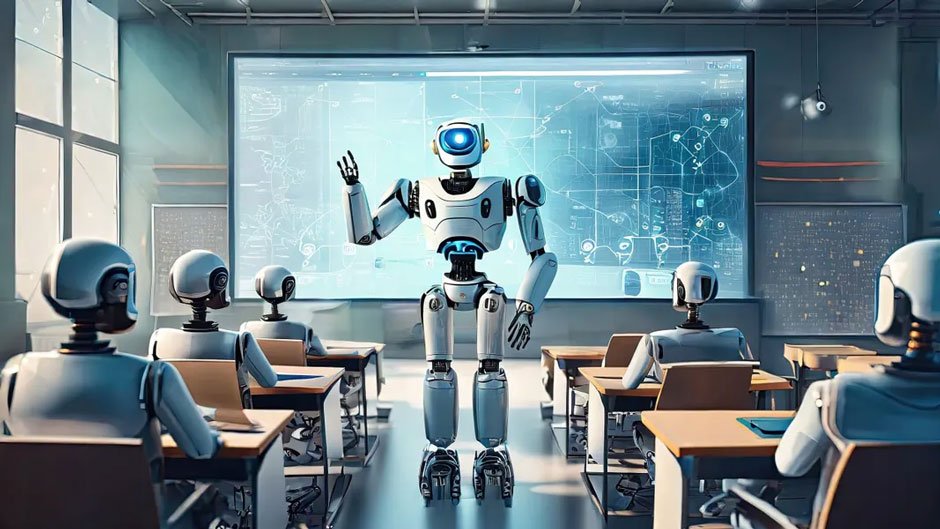
Artificial Intelligence (AI) is no longer a distant concept; it’s actively reshaping classrooms worldwide.
From personalized learning experiences to administrative support, AI is transforming how education is delivered and how teachers engage with students.
This article explores the evolving role of educators in an AI-enhanced educational landscape.
The Rise of AI in Education
The integration of AI into education is accelerating.
- In 2025, the global AI in education market reached $7.57 billion, marking a 46% increase from the previous year.
- Market projections indicate growth to $112.30 billion by 2034, reflecting the adoption of AI-powered solutions in schools and universities.
A 2024 survey revealed:
- 86% of students globally use AI in their studies.
- 54% use AI tools on a weekly basis.
In K-12 schools:
- 60% of teachers reported using AI tools during the 2024–25 school year.
- Teachers reclaimed nearly six hours per week—equivalent to six weeks per year—for personalized instruction and student support.
Personalized Learning: Tailoring Education to Individual Needs
AI enables personalized learning pathways for students. Adaptive platforms analyze student performance in real-time, adjusting content to match individual learning styles.
- AI identifies struggling areas and provides targeted exercises, allowing teachers to focus on students’ specific needs.
- Personalized learning enhances student success and creates a more inclusive educational environment.
Administrative Support: Reducing Teacher Workload
Administrative tasks often consume valuable teaching time. AI helps automate:
- Grading
- Scheduling
- Parent communication
For example, Queensland, Australia trialed an AI tool called “Corella” in 15 schools:
- Reduced administrative tasks by 25%
- Improved digital literacy and classroom safety
Ethical Considerations and Challenges
Despite the benefits, AI adoption raises ethical concerns:
- Data privacy: Nearly 70% of parents oppose sharing student data with AI systems
- Over-reliance on technology: Teachers worry AI could reduce human interaction, crucial for developing critical thinking and emotional intelligence.
To maintain academic integrity, tools like AI detectors help identify AI-generated content, ensuring students’ work remains authentic.
Preparing Educators for an AI-Enhanced Future
Teachers need proper training to fully leverage AI:
- 71% of teachers and 65% of students agree AI tools are essential for success in college and careers (World Economic Forum).
Training programs should focus on:
- Understanding AI tools
- Ethical use of AI
- Integrating AI with traditional teaching methods
The Collaborative Future: AI and Human Teachers
AI handles repetitive tasks, analyzes data, and personalizes learning. Meanwhile, teachers foster:
- Creativity
- Critical thinking
- Emotional intelligence
This human-AI partnership creates a dynamic, responsive classroom environment that combines technology with essential human interaction.
Conclusion
AI is not a replacement for teachers but a powerful complement. With effective integration, educators can deliver personalized, efficient, and engaging instruction, preparing students for a future where technology and human skills coexist.
Addressing ethical concerns, investing in teacher training, and ensuring AI enhances rather than replaces human instruction are critical steps toward an education system that benefits students and society alike.
